March 9, 2017
Get Started with These WordPress Beginner Tips
Publishing 24 posts per second and contributing 27 percent of the websites on the Internet, WordPress has empowered small businesses around the world for nearly 14 years. For a wide range of reasons, entrepreneurs opt to use WordPress to build their digital presence but if you are new to the platform, you might be feeling a bit lost. If you’re in need of some WordPress beginner tips to get your startup off the ground, you’ve come to the right place!
Initial Setup
Before you even install WordPress, you’ll need to figure out where to host your new site. For most small business owners, you’ll either choose from shared hosting, VPS hosting or managed WordPress hosting. Your web administrator will select the best hosting option based on your budget and needs.
For the businessperson with more than enough on their plates, managed WordPress hosting is the best option. This service puts the onus of website management on a team of WordPress masters. Yes, this option is going to cost you a bit more, but the convenience is worth the investment.
Once you’ve decided on a hosting option, the next step is to install WordPress. Any WordPress hosting company will make it simple to install the software needed to build and manage your new website. Each host will have a slightly different process for installing WordPress but it’s fairly straightforward. If you are working with a web designer, they will likely opt to install WordPress manually. Most beginners can choose the 1-click install option which makes installation simpler.
During the installation, you’ll specify your website domain, create your administrative login information, and setup your permalink structure. For permalinks, you’ll want to select the “Post Name” option instead of “Custom Structure” one. This will help with onsite SEO while creating an easily navigable layout for visits.
Themes
There are hundreds of thousands of WordPress themes to select from, so choosing one is no easy task. The best WordPress beginner tips for settling on a theme are:
- Keep it simple: Choose a template that functions simply and doesn’t distract the user with too many bells and whistles.
- Easy setup and ongoing maintenance: You want to select a theme that is not only easy to setup but also easy to customize and fix over time. Make sure that the original theme developer is supporting the theme on an ongoing basis.
- Aligns with brand persona: A WordPress theme should project your brand persona. If you own a business in the financial sector, you’ll want a theme that projects the professionalism of your company. Therefore, you’d probably want to skip over any themes that are flowery or sophomoric.
- Responsive design is a must: Any WordPress theme you consider using should offer responsive design. If it doesn’t, move along.
Plugins
Think of WordPress plugins like apps for your smartphone or tablet. Just as there are numerous themes to choose from, the number of WordPress plugins you can install is astronomical. There’s literally a WordPress plugin for everything from SEO to security. However, you have to be careful because not all plugins are created equal. Depending on your needs, you’ll want to select highly rated and professionally recommended plugins for your site. Never install an unknown plugin, as it could wreak all sorts of havoc on your website.
Security
Keeping your small business website secure is most likely one of your top priorities. Fortunately, you can customize your security options on WordPress using plugins and common best practices. For instance, you’ll want to remove any unused plugins or themes from your WordPress site to minimize security vulnerabilities. Also, you’ll want to regularly backup your site so you never lose your hard work. Always opt for two-factor authentication and use strong passwords that combine upper and lower case letters, numbers, and punctuation marks.
Site Construction
You’ve installed WordPress, selected a theme, and added necessary plugins. Now it’s time to build your site. You want to construct a site that users can explore with ease. Every small business should include a home page, about page, and contact page. If possible, a page that details your products and/or services is also a strong element to include on your WordPress site. If you are conducting e-commerce on your site, you’ll also need to include pages for terms of service, refund policy, and privacy policy in addition to your product pages. Even if you don’t currently have a content marketing strategy in place, you should include a blog section on your site as well.
Analytics
The reason a small business builds a website is to engage potential leads. To see if your site is successfully doing that, you’ll need to regularly review analytics. The Google Analytics plugin is really easy to use while illustrating where your website is succeeding. This data is invaluable to marketing and sales teams, so they can execute campaigns that drive more traffic to the website. Furthermore, the information provided by analytics informs your web administrator of any issues that are making the user experience less than perfect.
Migrate from Weebly or Wix
Maybe you’ve already built a website for your small business but you’ve decided to migrate it to WordPress. Don’t let the migration process scare you away from WordPress. It’s easier than you imagine to move your existing Weebly or Wix site to WordPress.
Ongoing Maintenance
Once you’ve built your WordPress site, you’ll need to perform regular maintenance tasks. From updating plugins to weekly backups of your site, these duties will ensure the ongoing operation of your site. If you don’t have a web administrator on staff to handle these responsibilities, work with a company that provides these services.
Even with these WordPress beginner tips, you are going to have questions. If a Google search doesn’t yield the answer you need, contact WordPress experts to discuss your concerns and uncertainties.
